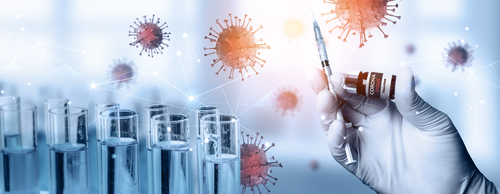
Reps. Frank Pallone, Jr. (D-NJ), Anna Eshoo (D-CA) and Diana DeGette (D-CO) seek answers from the Food and Drug Administration (FDA) on its process to determine the accuracy of COVID-19 diagnostic and serological tests.
“Public health experts have consistently called for increased access to reliable diagnostic testing to improve treatment, surveillance, contact tracing, and containment efforts,” the lawmakers wrote in a letter to FDA Commissioner Stephen Hahn. “While many diagnostic tests have been authorized to come onto the market under an Emergency Use Authorization (EUA), questions remain about [FDA’s] oversight of these tests and their reliability. As we continue to take the necessary steps to improve access to testing, it is imperative that Americans and their health care providers have the utmost confidence in diagnostic tests. We write to you today to inquire about FDA’s work to determine the accuracy and sensitivity of these tests.”
Pallone is the chair of the House Energy and Commerce Committee, while Eshoo chairs the Health Subcommittee and DeGette chairs the Oversight and Investigations Subcommittee.
Since February 29, the FDA has issued more than 170 EUAs (emergency use authorizations) for diagnostic testing products. While most diagnostic tests might typically undergo large patient studies prior to approval to determine accuracy, those authorized under an EUA typically undergo a much smaller clinical testing sample.
“While no diagnostic test will ever be 100 percent accurate, these lower standards for determining reliability in diagnostic tests could affect our understanding of COVID-19’s spread within a community and across the United States,” the committee leaders wrote. “As outbreaks continue to arise, patients, health care providers, and public health officials must be able to quickly test and trace the path of the disease.”
The lawmakers also raised questions on the reliability of rapid point-of-care diagnostic tests that can provide test results in 5 to 30 minutes. They cited a study found that the rapid point-of-care test the White House uses could have a false-negative rate as high as 48 percent. They raised similar concerns about serological tests, which determine the presence of antibodies to the coronavirus.
“While we are pleased that FDA is finally evaluating these tests under its May 4 revised guidance and is also publicly listing tests that should no longer be distributed, we believe FDA should do more to protect the safety and health of the American people,” they wrote.
The lawmakers posed a series of questions to Hahn and the FDA, asking for a response by July 27. One of them asked the FDA to describe the post-market actions FDA is taking to evaluate the reliability of COVID-19 in vitro diagnostic tests, including serology tests. Another asks them to identify which commercial test developers FDA has requested to provide additional data or conduct post-marketing studies of tests authorized by an EUA.




